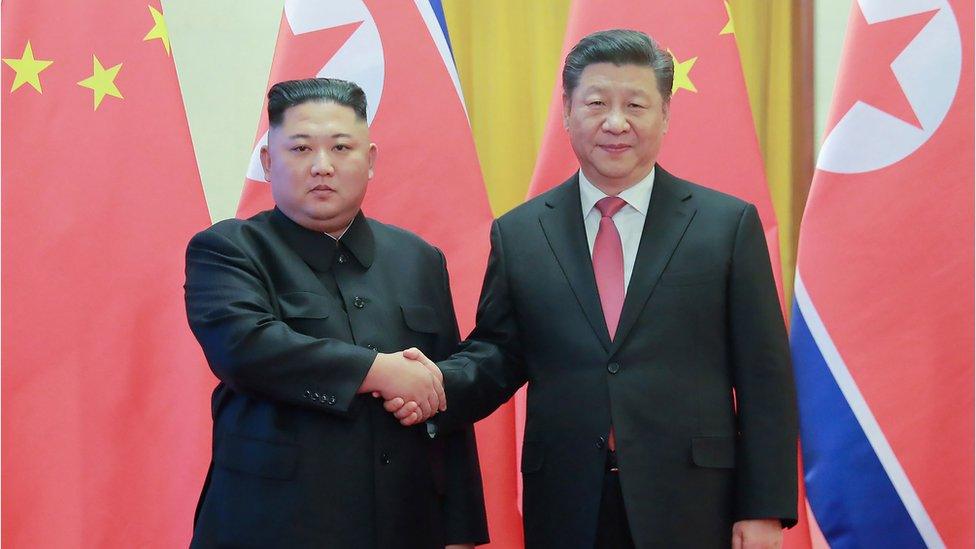North Korea drought: South Korea to send 50,000 tonnes of rice
- Published
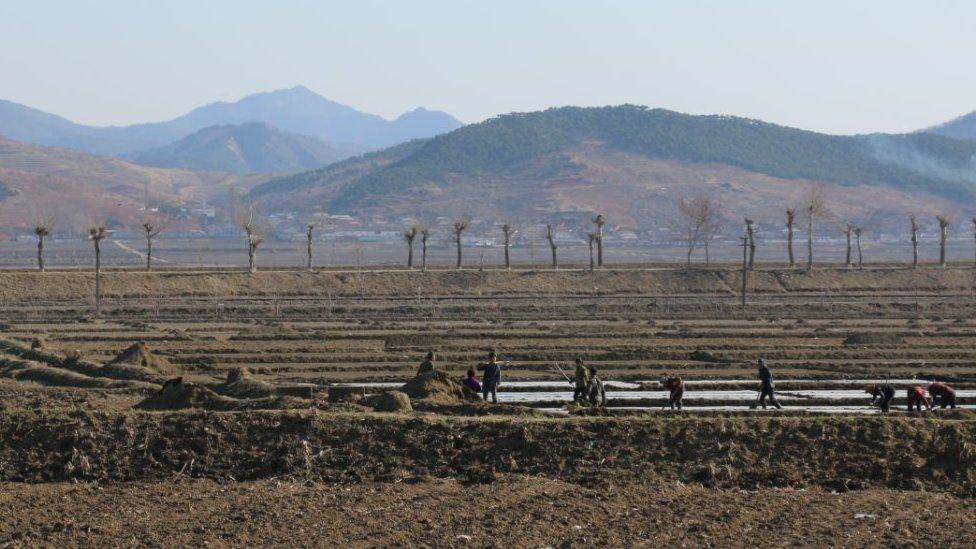
A series of events have led to North Korea's worst harvest in a decade
South Korea plans to send 50,000 tonnes of rice to drought-stricken North Korea, its first food donation to the isolated nation in a decade.
A severe drought, compounded by economic sanctions, has led to chronic food shortages in North Korea.
South Korea's unification ministry said the rice will be delivered "as soon as possible".
The UN's World Food Programme (WFP) will be in charge of overseeing the food donation.
"The government cannot ignore the plight among North Korean people," said Kim Yeon-chul, South Korea's unification minister.
South Korea's last food donation to North Korea was in 2010, when it sent 5,000 tonnes of rice across the border - just a tenth of the current planned donation.
Amid improving relations between the nations, Seoul recently donated $8m (£6.3m) to UN programmes providing nutritional and medical support to women and children in North Korea.
Last month, a UN report, external said up to 10 million North Koreans were "in urgent need of food assistance".
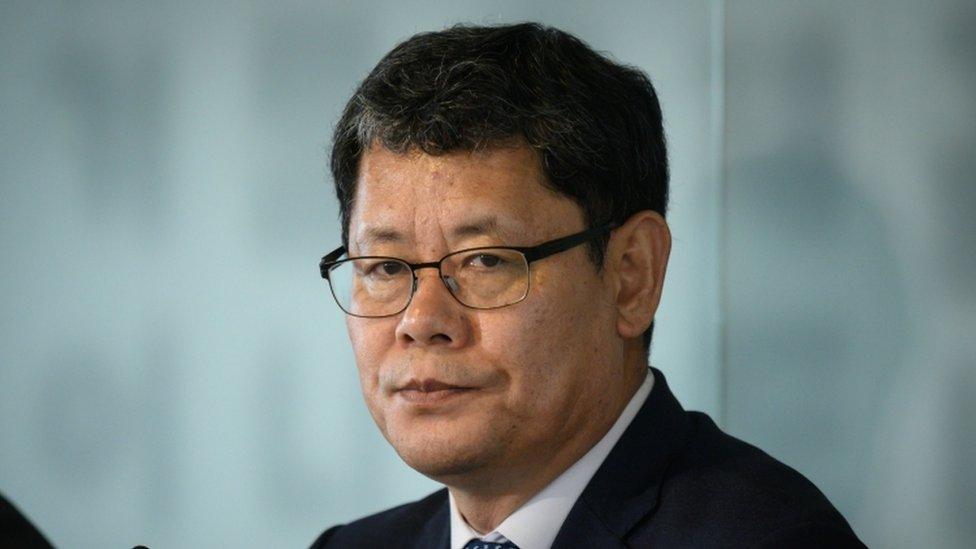
South Korea's unification minister said he cannot "ignore the plight" of North Koreans
How bad is the food shortage?
The UN report found North Koreans had been surviving on just 300g (10.5 oz) of food a day so far this year.
This scarcity of food has been attributed to North Korea's worst drought in 37 years, which has resulted in poor harvests and crop damage across the country.
In 2018, North Korea's crop output hit the lowest level since 2008, according to the UN report.
North Korean drought: state TV shows footage of lush crops and free-flowing water.
It estimated that 40% of the country's population are in urgent need of food, while 70% rely on rations.
North Korea has struggled for decades with food production. The nation suffered a famine in the 1990s which is thought to have killed hundreds of thousands.
It has long claimed that international sanctions over its nuclear and missile programme has crippled its economy and diminished its ability to feed its people.
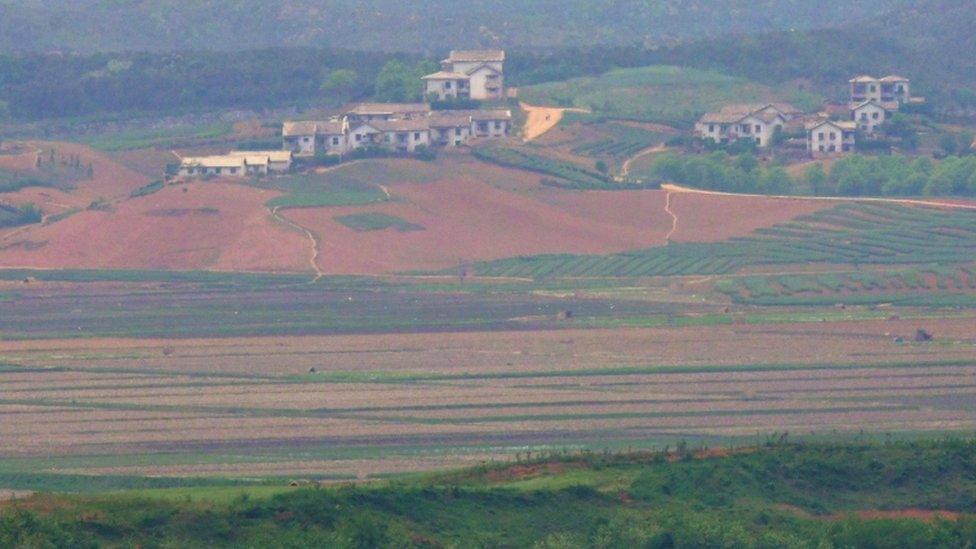
North Korea is experiencing its worst drought in over a century, official media has reported
How are relations between North and South Korea?
South Korea's relationship with North Korea has improved in recent years. In 2018, North Korea vowed to make steps towards denuclearisation and halt long-range missile tests, paving the way for engagement and dialogue.
But their rapprochement suffered a setback in February this year, when talks between US President Donald Trump and North Korean leader Kim Jong-un in Vietnam collapsed.
Since then, North Korea has carried out short-range missile tests, destabilising relations with South Korea and the US.
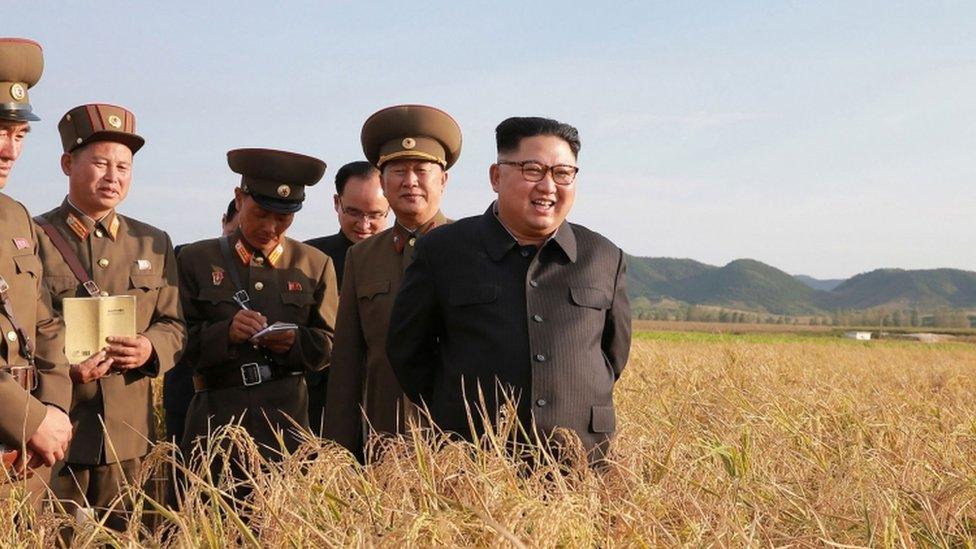
North Korean leader Kim Jong-un (R) visiting a farm in 2017
Critics argue that sanctions and an embargo on food assistance should persist, but South Korea's government believes humanitarian aid should not be politicised.
UN sanctions do not ban humanitarian aid to North Korea. However, exceptions must be approved and vetted by the UN Security Council's sanctions committee.
South Korea's Yonhap News Agency reports that the Seoul government expects the food donation to boost the cross-border reconciliatory mood.
Denuclearisation talks have stalled since February's Vietnam summit. Those talks are expected to be discussed by Mr Kim and China's President Xi Jinping, who makes his first state visit to North Korea this week.
Meanwhile, Mr Trump is set to travel to Seoul for talks with South Korean President Moon Jae-in.
On Wednesday, South Korea's special envoy for North Korea, Lee Do-Hoon, urged Pyongyang to accept an invitation for an inter-Korea summit ahead of Mr Trump's visit.
- Published3 May 2019
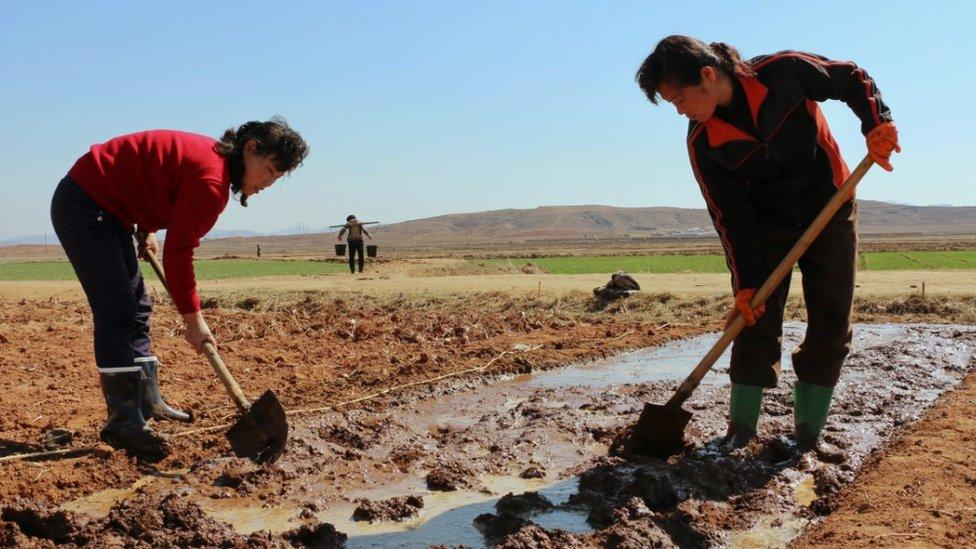
- Published4 May 2019
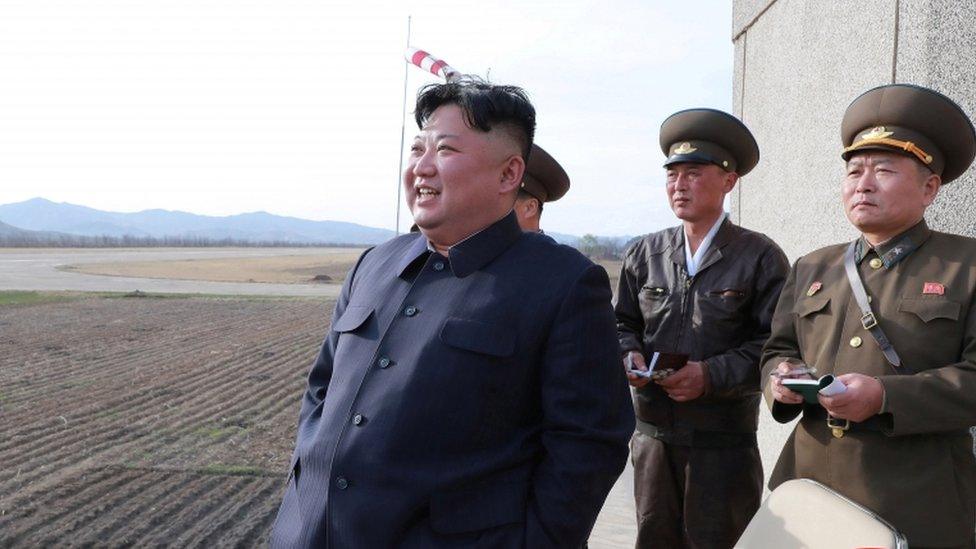
- Published17 June 2019
